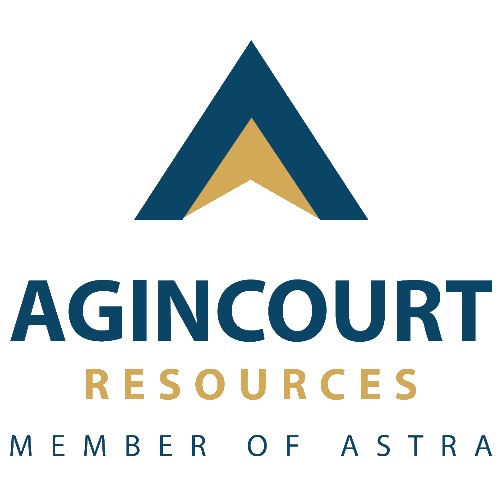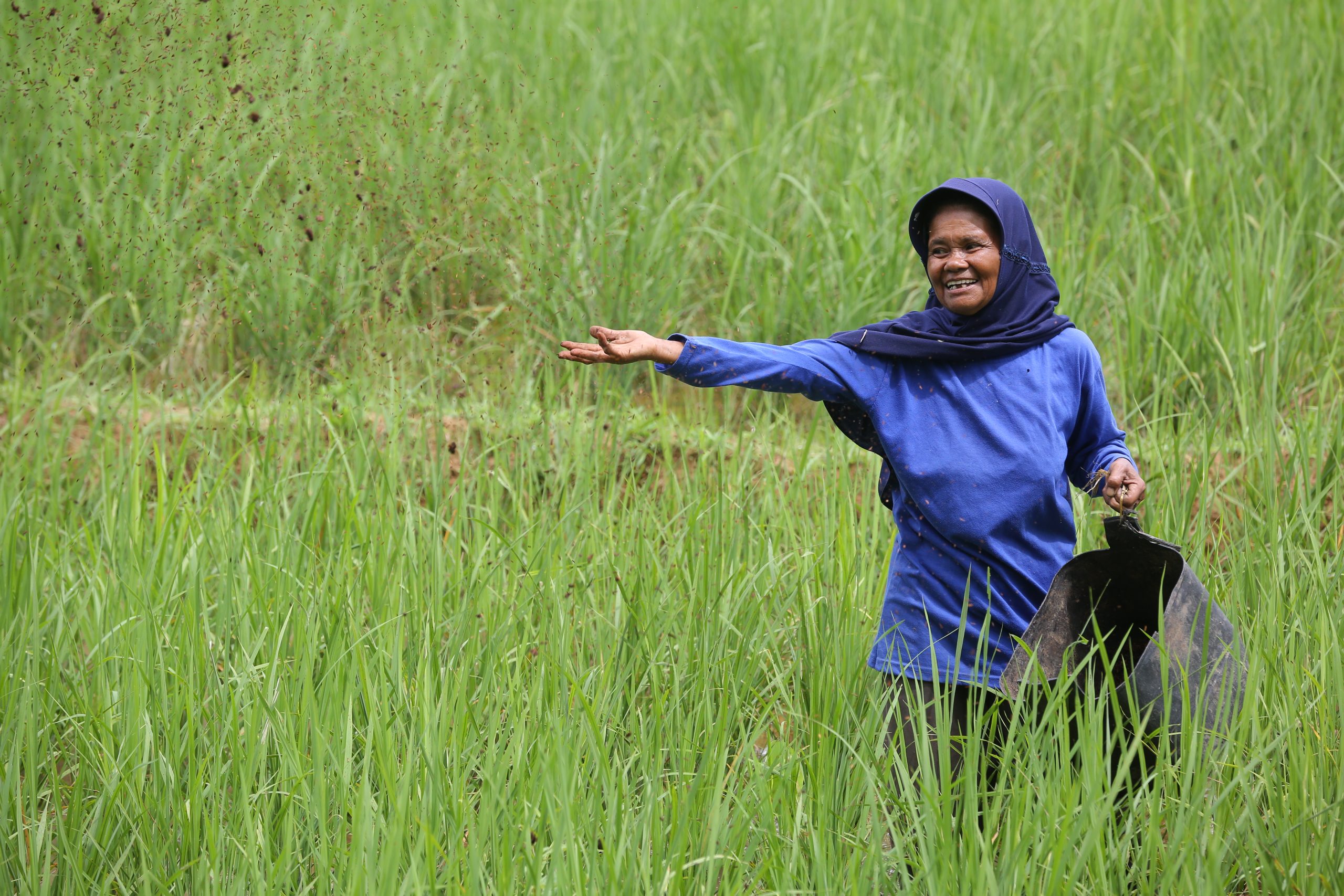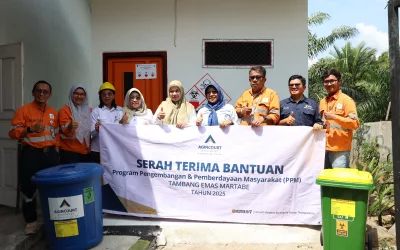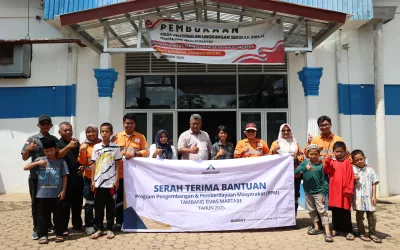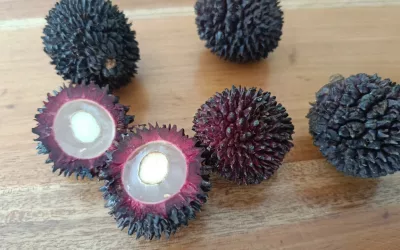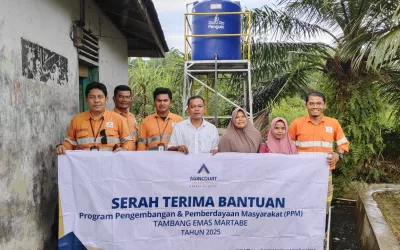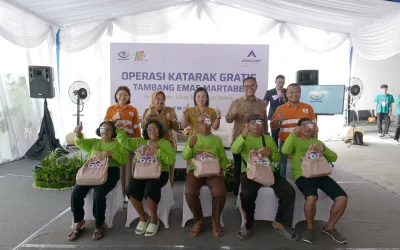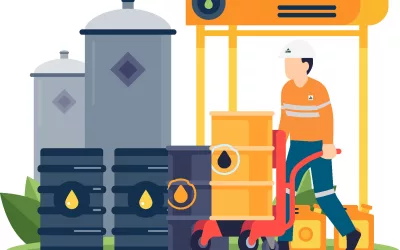For decades, farmers in Batangtoru have been accustomed to traditional farming techniques using simple tools. They use pesticides and inorganic seeds, and agricultural products marketing is still limited.
However, in 2013, PT Agincourt Resources (PTAR), as the operator of the Martabe Gold Mine, began to provide assistance. The farmers who first received assistance were farmer groups in the Aek Pahu area, Napa Village, Batangtoru. The Aek Pahu Farmers Group, which initially consisted of 25 people, was taught to manage three hectares of organic rice fields in early 2016.
The Aek Pahu Farmers’ Group was guided to use organic rice seeds, organic fertilizers, and even organic pesticides. Some farmers were even invited to join study visits to other areas to learn organic farming techniques.
The seeds used in Aek Pahu are local organic seeds from Cianjur. And, they also plant other organic rice varieties, including SAW, Merah Saodah, Merah Putih, and Jasmin. These organic seeds are easier to plant and can continually produce new seeds. Unlike inorganic rice seeds which can only produce good new seeds one to two times. Thus, farmers can save on the cost of buying seeds.
Although farming with organic rice seeds, initially, produced less, it only produced 6 tons of rice per hectare compared to 8.4 tons of rice per hectare for inorganic seeds, its production will increase over time. In addition, organic farming is also environmentally friendly because it is believed to have a higher ability to hold water so that the soil becomes healthier, can limit the occurrence of environmental pollution due to residues of pesticides, fertilizers and other agricultural chemicals, and can reduce erosion problems due to improper tillage. In terms of costs, organic farming is more cost-effective in the long run because there is no need to buy chemical fertilizers and pesticides, maintenance is not difficult, and the rice selling price is very high. So, there are more advantages to organic farming.
In addition to introducing the organic rice farming system, PTAR also implements optimization of cultivation techniques and provides added value to the organic farming business through the mina padi method or fishery in the rice fields. Types of fish that are stocked in this organic rice-fish system include jurung fish, goldfish, tilapia and eels. These fish can give additional nutrients to the soil and rice planted, and be a nutrient-rich food for the farmer’s family. This is in line with the South Tapanuli Agriculture Service program, which is the intensification and extensification of agriculture to support the government’s National Food Security program.
In 2017, the organic rice produced in Aek Pahu succeeded in obtaining pesticide-free certification from the PT Sucofindo Laboratory. In 2019, organic certificates from the LeSOS institution and North Sumatra MUI halal certificates were also obtained. With these certifications, Aek Pahu’s organic rice is expected to be able to penetrate a larger market, not only being sold around Batangtoru District, but also can win customers in big cities like Medan. PTAR is also assisting in exploring cooperation with Hypermart, Lotte Mart, and Indomaret, which are willing to sell Aek Pahu’s organic rice on condition that it has organic certificates and MUI halal certificates.
The Aek Pahu rice field area has now become an educational and recreational Organic Farming Eco Park. PTAR is indeed trying to make Aek Pahu an integrated agricultural area. Aek Pahu has now become a center for education, training and development related to technology and organic rice business. Until now, many trainings have been held, including for organic farming and its marketing.
For this reason, the Aek Pahu integrated agricultural area is expected to continue to grow. The existence of supporting infrastructure is also very much needed to help the farmer’s productivity. PTAR also built micro hydroelectric power plants (PLTA) and solar panels, provided jet engines, and built irrigation canals and supporting infrastructure, such as bridges and access roads. PTAR even plans to build a rice factory complete with a drying floor and paddy storage area.
This community empowerment program is in line with the concept of Corporate Social Responsibility (CSR) according to the Ministry of Energy and Mineral Resources (ESDM), i.e. programs that can provide greater benefits to the surrounding community, for example by creating jobs or inviting local people to work together for the common good.
